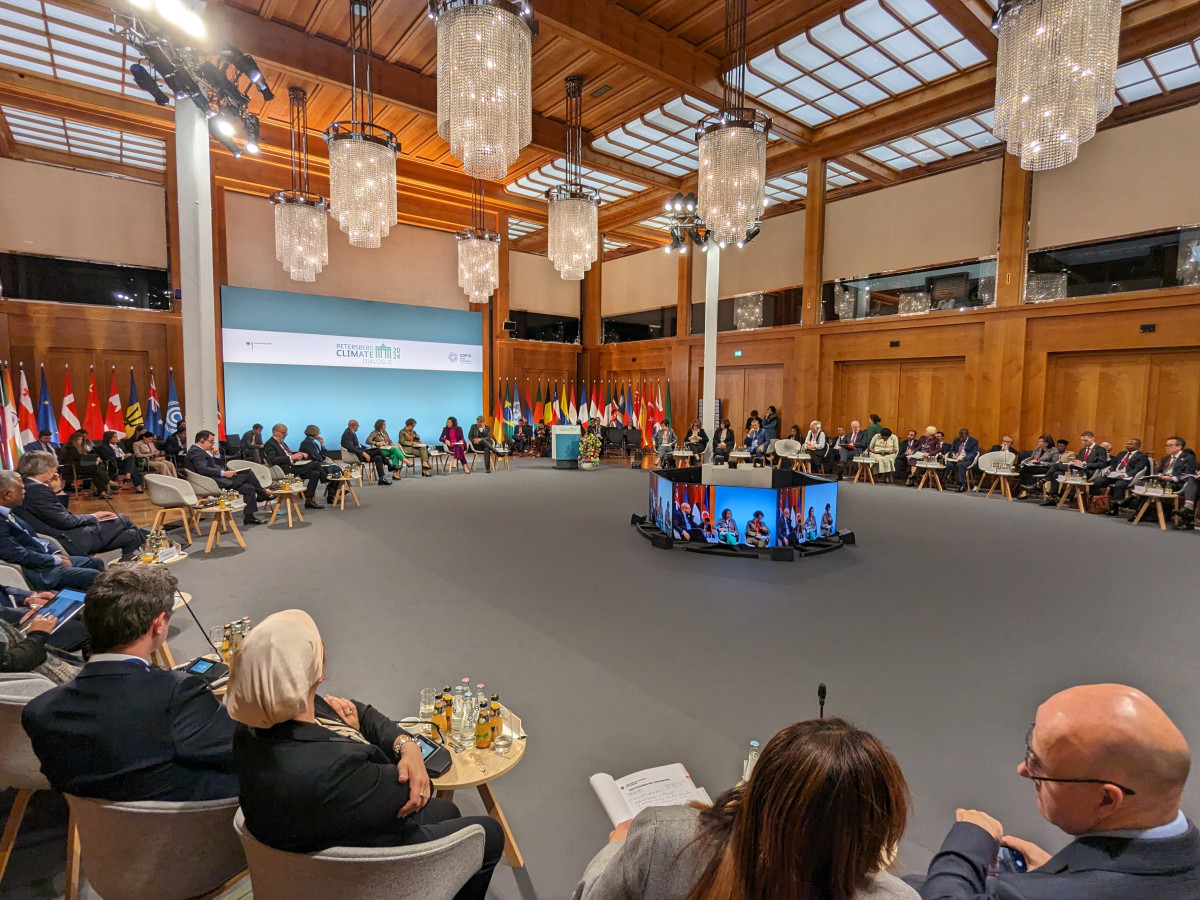Germany says it will stick to international climate finance commitment despite budget crisis
Foreign minister Annalena Baerbock has said that Germany continues to aim to provide 6 billion euros in international climate finance to developing countries from next year, despite a tight national budget. "I want to confirm that our goal for 2025 stands at 6 billion euros per year, even though we face heavy budget pressure like so many, but especially also here in Europe because of Russia's war against Ukraine," Baerbock said at the Petersberg Climate Dialogue in Berlin.
Industrialised countries must continue to live up to their responsibility, she said. "That is why financial contributions from developed countries and multilateral development banks will remain the basis of our efforts. Germany has kept and will keep its promises in this regard."
Germany’s budget difficulties following a landmark constitutional court ruling last year continue to put pressure on spending across the board. News magazine Der Spiegel had reported that due to the budget woes, Germany could fall short of its target. In a reply to a parliamentary enquiry by the Left Party, the government said that its projections for the amount of climate finance last year and this year would decrease with new federal budget data. In October, the government had projected to have provided 5.1 billion euros in 2023, which it said would increase to 5.3 billion euros in 2024. In a surprise announcement last year, the government said that in 2022, Germany had already reached its target (at 6.4 billion euros).
Debates on international climate finance after 2025
International climate finance – funds provided or leveraged by richer countries to support climate mitigation and adaptation measures – has traditionally been one of the most important elements of negotiations at UN climate change conferences. Climate finance is needed to significantly reduce emissions, but donor countries have been hesitant to commit. At COP15 in Copenhagen in 2009, developed countries promised to mobilise 100 billion US dollars from public and private sources per year by 2020 for climate change mitigation and adaptation in developing countries – but they failed to do so. The OECD recently said that the goal was likely met two years late, in 2022, based on preliminary and unverified data.
Discussions have already started on what should happen after 2025 – the so-called New Collective Quantified Goal on Climate Finance (NCQG), which is to be decided at the upcoming UN climate change conference COP29 in Baku, Azerbaijan, in November. "We need to build on that and go beyond the 100 billion US dollar mark," Baerbock said at her government's conference in Berlin. The minister "strongly urged" all countries that could contribute to international climate finance to do so, especially the G20 members, “because strong economies share strong responsibilities.” Germany and the EU have called on emerging economies like China to start paying into international climate finance mechanisms. The United Arab Emirates’ contribution to the loss and damage fund at last year’s COP28 has remained an outlier in terms of contributions from countries other than the traditional industrialised ones.
The German government has invited about 40 governments to the 15th edition of the annual Petersberg Climate Dialogue to prepare climate talks coming up throughout the year, most notably COP29 in Baku. As the incoming COP presidency, Azerbaijan is also co-hosting the meeting in Berlin. The country's president, Ilham Aliyev, and German chancellor Olaf Scholz are set to participate on the second day on Friday (26 April).
The dialogue in Berlin is meant to provide government representatives with a space – often behind closed doors – to have the necessary "difficult discussion" on international climate policy. This year, government representatives discuss how countries can improve their climate plans (nationally determined contributions, NDCs), and how key agreements from last year's COP28 in Dubai are to be implemented. Governments from almost 200 countries had agreed to transition away from fossil fuels, triple global renewables capacity by 2030, double energy efficiency improvements, and financially support vulnerable developing economies dealing with unavoidable losses and damages from climate change.
Germany proposes new alliance to help developing countries improve climate plans
At the conference, Baerbock proposed to form "a multi-stakeholder alliance" to assist developing countries in drafting their climate plans (NDCs), which are aligned with the 1.5°C temperature rise limit. This should be a coalition of changemakers that brings together government ministries and financial institutions, private financial actors as well as civil society, indigenous people, international organisations and existing initiatives.
This alliance should "encourage bold political decisions on a national level for reduction targets," and help countries draft and implement their NDCs. Germany would support such an alliance financially, Baerbock said, without giving details.
Designated COP29 president Mukhtar Babayev, Azerbaijan's environment minister, welcomed the proposal and said that he hoped this would provide political momentum to the next round of NDCs. Parties to the Paris Climate Agreement are called upon to update their NDCs ahead of COP30 in Brazil.


